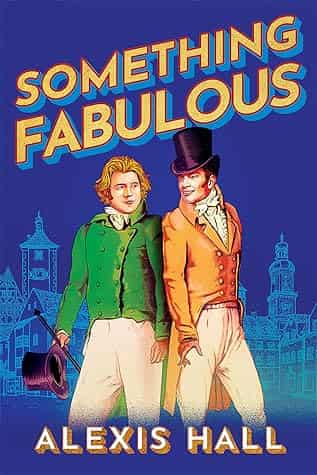So far the theme of the year is romances that I read and then re-read right away and install on my best-of-year list (best-of-ever list too, in the case of Something Fabulous, which more than lives up to its name).
A few notes:
We’re starting to see the books written during the pandemic where authors are writing what they WANT, not what they SHOULD. It happened here, it happened with Delilah Green—it’s a joy and it changes the shape of the story in ways I want to see more of.
Valentine with the slow realization he’s the villain of his own story is such a necessary twist, and one I hope we see more of, especially in historical fiction, especially with dukes.
The way Alexis Hall removes the obstacles he’s set up to the romance is a deft touch and perfect in a queer book that has to invent its own happy ending. Most if not all of them are in Valentine’s head, and doing away with them involves listening instead of making assumptions + rethinking what’s possible outside the chokehold of convention.
The JOY in this book. It’s one bananas gothic trope after another, and it’s riffing on the joy and power of stories, the way they save our lives. See again: pandemic fiction. ♥️
I wrote a post recently about what it feels like to find out there’s a word for what you are and that others like you exist, and Valentine—his chaotic distress, indignant grief, baffled anger, and disorienting joy—might be the most relatable portrayal I’ve read yet. (Well, except for all the parts where he’s going, but I AM A DUKE.)
“Nobody told me it was a possibility.” Valentine suddenly discovered he was quite aggrieved. “Why has this never been brought to my attention?”
So yes, that made the book very very special to me, with whole pages I wanted to tear out and curl up with like blankets. Um… metaphorically? That makes sense, right? Anyway—zany tropes, real emotion. Long love the power of books to make us feel seen.
